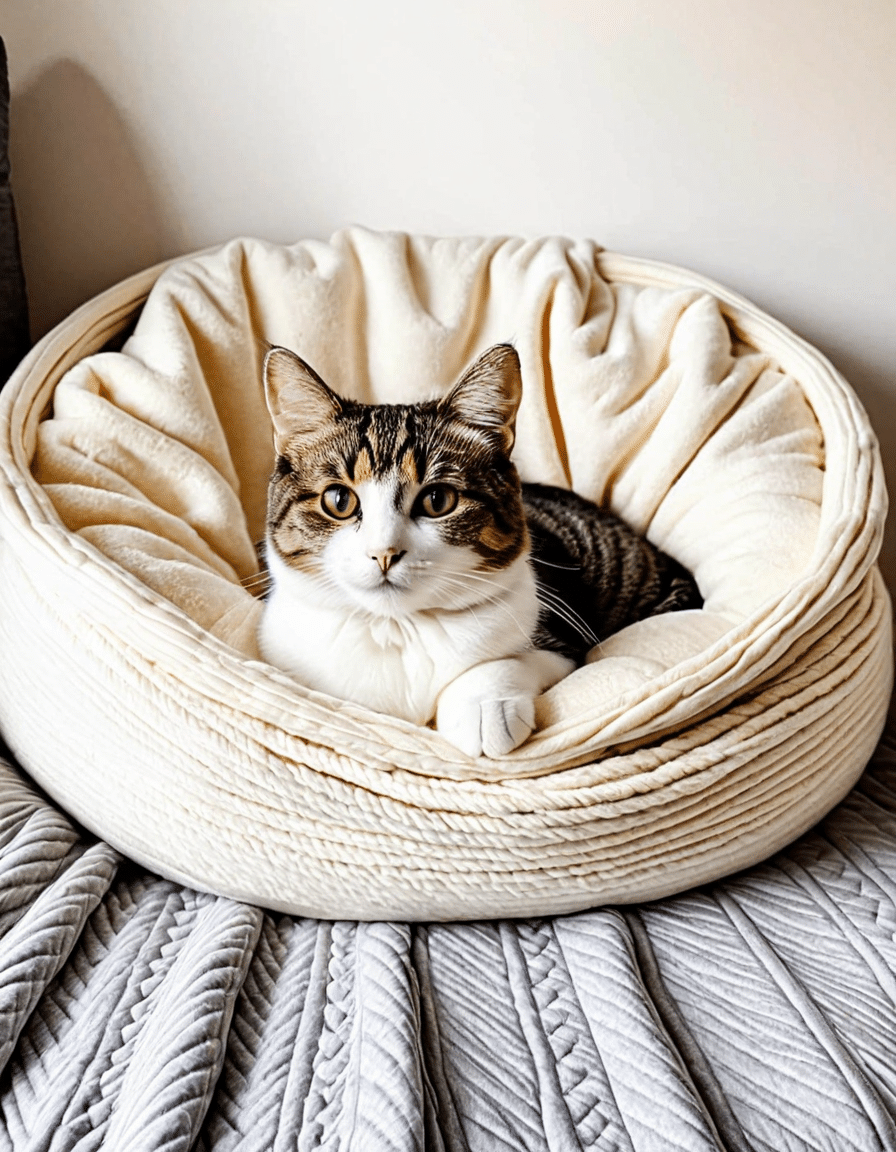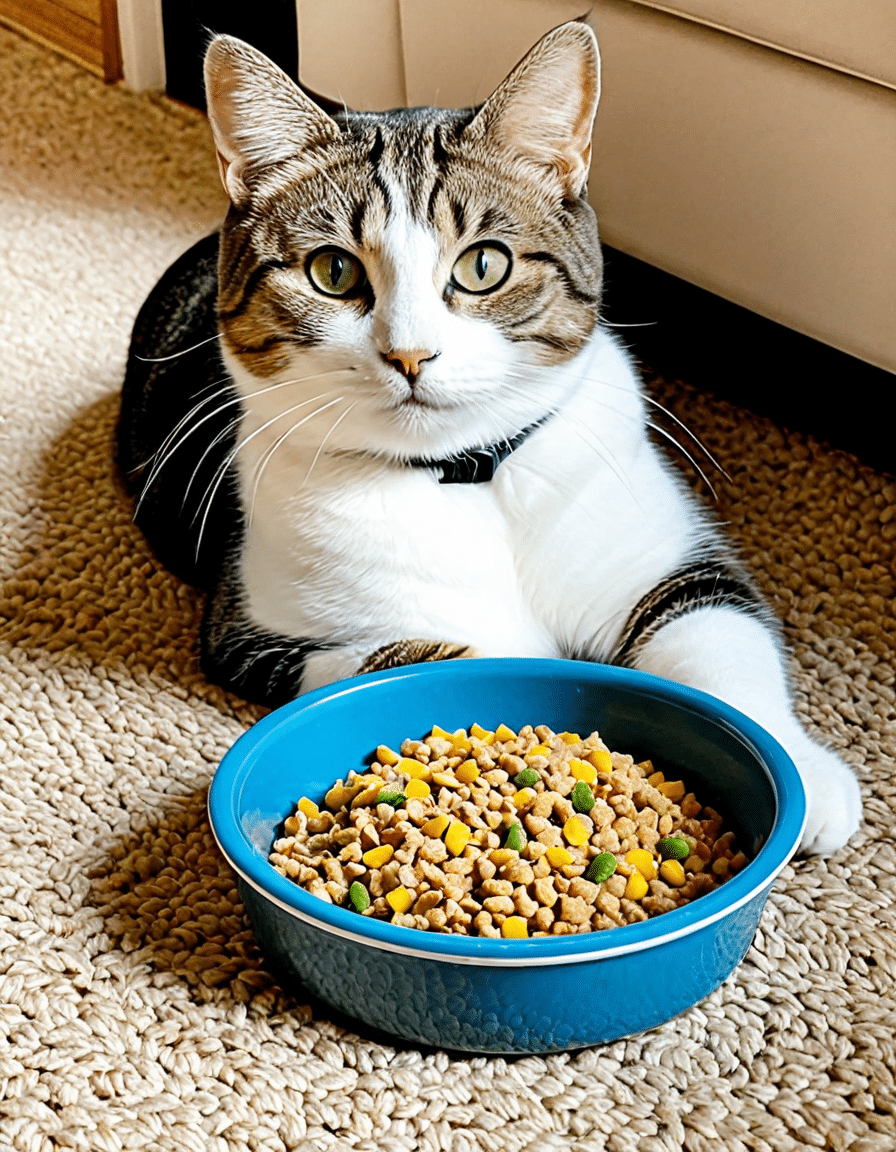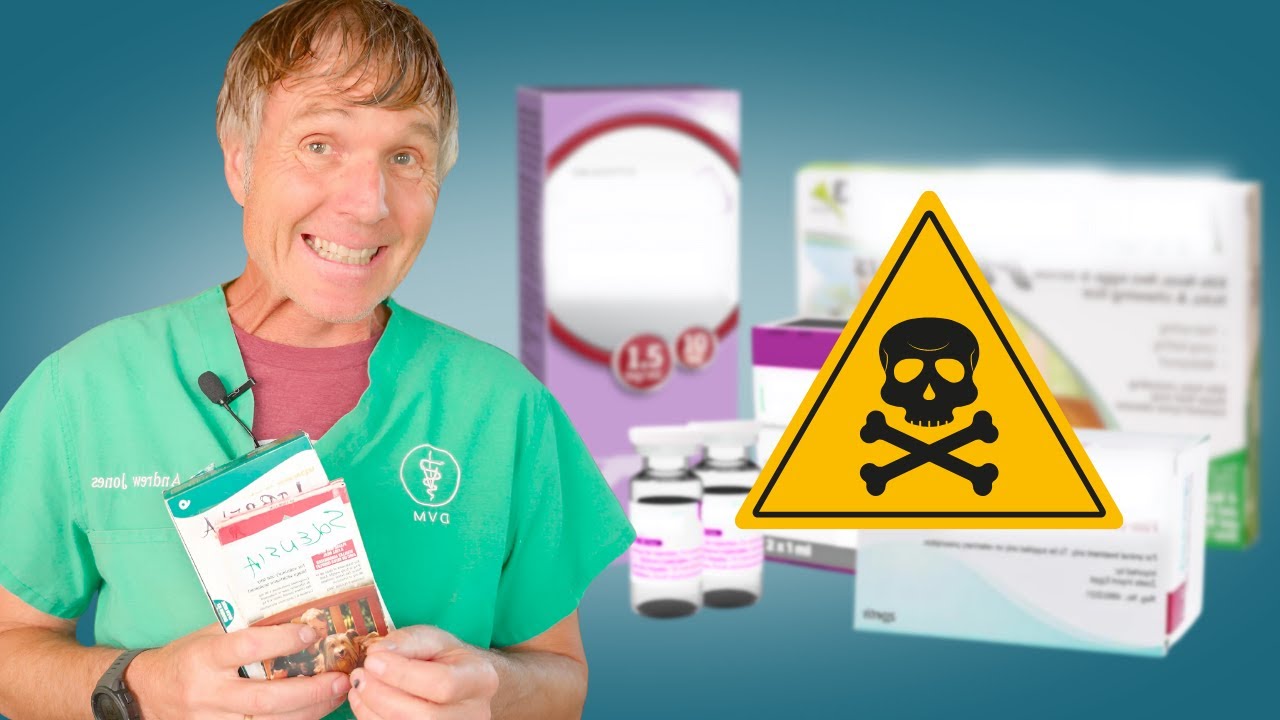Understanding feline digestive health is crucial for your cat’s overall well-being. One emerging solution that’s gaining traction among veterinarians is cisapride for cats, a medication originally developed for humans that has shown promise in treating digestive issues in felines. This article dives into the benefits, mechanisms, and considerations of using cisapride, alongside comparisons with alternative medications such as clindamycin and insights on other helpful products for various pets.
What is Cisapride for Cats?
Cisapride is a prokinetic agent that stimulates gastrointestinal (GI) motility. This means it helps your cat’s digestive system work more effectively, making it especially useful for those suffering from constipation, megacolon, or other digestive disorders. By enhancing the coordinated contractions of the GI tract, cisapride aids food passage and contributes to better digestion. Knowing how it works can help you recognize its role in veterinary practices.
Originally formulated for human use, this medication can significantly improve your cat’s quality of life. Many cats experience digestive issues that not only make them uncomfortable but can also affect their overall health. Observing your cat’s behavior and recognizing signs of digestive distress could lead to timely interventions, including considering cisapride for their treatment.
When discussing treatment options with your veterinarian, understanding how cisapride fits into the broader context of feline healthcare can provide reassurance. It’s essential to engage with a trusted veterinarian who can clarify whether this medication is appropriate for your cat based on their individual needs and health history.

Top 5 Benefits of Cisapride for Cats
Cisapride facilitates faster gastric emptying and increased intestinal movement. This is particularly beneficial for cats with megacolon, a condition in which the colon becomes enlarged, making it difficult for them to pass stools.
Constipation isn’t just uncomfortable for cats; it can lead to serious health issues. Cisapride can significantly alleviate discomfort and improve stool consistency, making it a great option for cats that struggle in this area. Additionally, it can enhance the efficacy of laxatives, helping those who need extra support.
Unlike some harsh alternatives, cisapride typically exhibits minimal adverse effects when prescribed by a veterinarian. This makes it a preferred choice for long-term management of digestive issues, which can be vital for cats that require ongoing treatment.
Cisapride isn’t just for chronic GI conditions; it can also support post-surgery recovery. Cats that have undergone surgery often face slowed digestive systems, and cisapride can promote a quicker return to normal function.
This medication can be used alongside others, like clindamycin for cats, for cases where infections complicate GI issues. This adaptability allows for comprehensive treatment strategies tailored to each cat’s specific situation.
Comparing Cisapride and Clindamycin for Cats
While cisapride focuses on enhancing motility, clindamycin is an antibiotic that effectively treats various bacterial infections in cats, notably dental and skin infections. Understanding the key differences between these two medications can guide treatment decisions for your feline friend.
Ideal for those suffering from motility disorders, especially constipation or megacolon, cisapride helps restore normal digestive function, bringing relief to distressed kitties.
Clindamycin shines when treating infections where gastrointestinal health might be at risk. If a cat’s infection impacts its appetite or digestive function, an experienced veterinarian might recommend a combination of both medications.
It’s important to note that co-administration requires careful veterinary supervision. As a responsible pet owner, consulting your vet to establish the best treatment plan will lead to a happier and healthier cat.

Alternative Solutions: Metamucil for Dogs and Hydrocodone for Dogs
Pet owners often explore various options for managing digestive health across species, though not all solutions are interchangeable.
This fiber supplement can provide dogs with additional bulk, aiding in stool management. However, unlike cisapride, it doesn’t actively stimulate GI motility. You might find it beneficial if your dog is only slightly constipated.
This medication is primarily used for pain relief. However, it can sometimes lead to constipation as a side effect, making ongoing monitoring essential for dogs being treated with hydrocodone. If your pooch shows signs of digestive issues while on this medication, consult your vet immediately for adjustments.
Each of these alternatives serves a distinct purpose and should only be used under veterinary guidance. Proper management of digestive health is key for every pet species, including your dogs.
Laxatone for Cats: An Effective Complement to Cisapride
Laxatone is a popular lubricant therapy for cats that works well alongside cisapride treatment.
Using Laxatone along with cisapride may give your cat a more comprehensive solution to their digestive woes.
The Future of Cisapride for Cats and Broader Implications
With ongoing research in feline digestive health, the future of cisapride for cats is looking bright. As more veterinarians adopt this medication for off-label use in feline care, ongoing studies are likely to reveal more nuances in its effectiveness. This could lead to refined dosage recommendations and improved administration methods, allowing veterinarians to address various new conditions safely.
In addition, the growing acceptance of cisapride highlights the importance of tailored veterinary medicine that focuses on the needs of each species. This mindset could spur innovation in treating other pets, including dogs and exotic animals.
By advocating for proactive measures and treatments based on individual needs, pet owners can ensure healthier and happier lives for their beloved companions. Engaging with a trusted veterinarian about options like cisapride, Laxatone, or other medications is crucial for formulating the best care plan for your cat.
Ultimately, being informed about these medications paves the way for better health management strategies. With proper care, we can revolutionize how we approach and support digestive health across various species, making sure our pets lead long and happy lives. So, don’t let digestive issues linger – consult your vet today and explore the possibilities that cisapride and other treatments offer!
Cisapride for Cats: Fun Trivia and Interesting Facts
The Cat’s Digestive Superhero
Cisapride for cats is a fascinating medication that works wonders for feline digestive issues. Did you know that this powerful solution helps stimulate the stomach and intestines, bringing relief to those picky eaters and sensitive tummies? Cats are curious creatures, sometimes more so than their canine cousins, like in the case of the Dutch Shepherd vs Malinois debate. Just as each breed has unique traits, cats also exhibit individual quirks that may affect their digestion. Keeping their gut health in check is crucial for overall well-being.
A Little History Behind Cisapride
Originally developed for human use, cisapride made its way into veterinary medicine when veterinarians discovered its effectiveness on cats. But let’s take a moment for a quick sidestep—have you ever checked out 9 amime? It’s a nostalgic portal of feline animations that can make any cat lover smile. Just like those beloved cartoons, cisapride brings a sense of comfort to cats struggling with digestive troubles, bouncing back as if they were in one of those lively animation sequences.
Paws and Claws: Understanding Feline Digestion
When it comes to digestion, cats are natural hunters, and their bodies are built for a high-protein diet. However, just like cherry Plums can surprise you with their sweet hint amidst tart, cats can surprise their owners with unexpected digestive issues. Cisapride for cats might help bridge that gap and restore balance in their diets. Interestingly enough, the life expectancy of a cat with proper digestive health can be much higher. Speaking of longevity, did you know that gray Kittens often end up with beautiful, silver coats as they mature? Ensuring a sturdy digestive track with aids like cisapride can help them grow into healthy adults, setting them on the path to a long, happy life.
So, the next time you look into ways to support your furry friend’s health, think about how cisapride for cats might be the hero they need. Each cat is unique, and understanding their needs will not only help them thrive but also make your bond even stronger!






